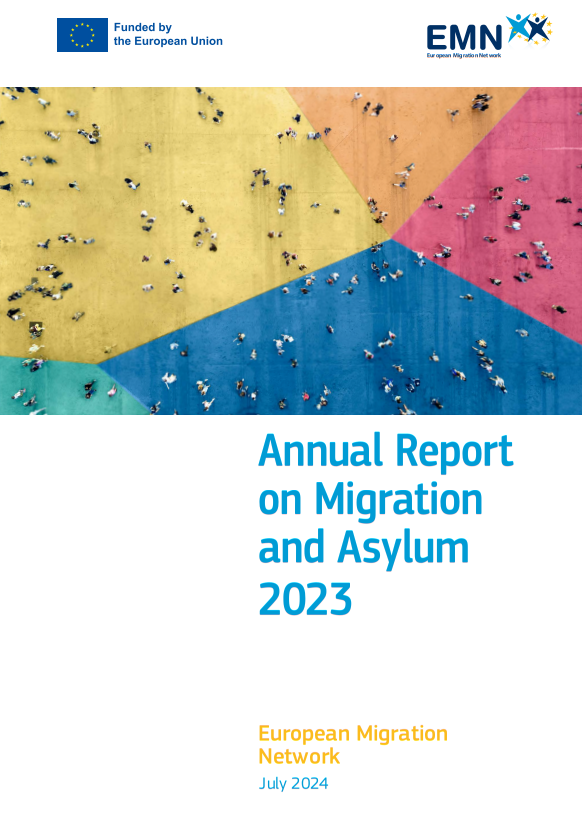At EU-level, the most significant development in 2023 was the political agreement reached in December by the European Parliament and the Council of the EU on the Pact on Migration and Asylum, which was thereafter adopted in 2024.
First-time applications for asylum increased overall across the EU in 2023, exceeding one million applications. EMN Member Countries responded by adopting measures to increase efficiency of asylum procedures and alleviate pressure on reception capacities. Other measures to support asylum seekers included increased healthcare-related support and developments to facilitate entry into the national labour market in some EMN Member Countries. 2023 was also marked by an increase in irregular migration directed to the EU, with approximately 380 000 detected illegal border crossings, a 17% increase from 2022, the highest annual figure since 2015-2016.
Amidst the ongoing war in Ukraine, the EU extended temporary protection for displaced persons from Ukraine until March 2025. Temporary protection was prolonged again in 2024 until March 2026. EMN Member Countries and Norway provided shelter to approximately 4.3 million beneficiaries of temporary protection. Further efforts were directed to integration measures, including housing, education, and labour market access, to support displaced persons from Ukraine.
Attracting and retaining talent to meet labour market needs remained a key priority for most EMN Member and Observer Countries. Many governments introduced policies to simplify admission procedures for various workers, particularly those highly skilled or in shortage occupations. Measures to facilitate the mobility and stay of students and researchers were also widely pursued. At EU-level, the EU Talent Pool was presented as an initiative to match employers in the EU with jobseekers from non-EU countries, simplify qualifications recognition procedures, and promote both student and labour market mobility.
EMN Member Countries continued to address racism and discrimination, protecting victims of trafficking, unaccompanied minors, and other vulnerable groups, including LGBTIQ. Training, awareness-raising, cross-border cooperation, and legislative amendments were among the measures adopted reflecting a commitment to inclusivity and protection.


